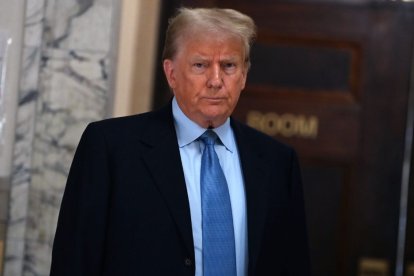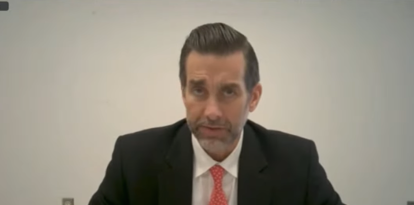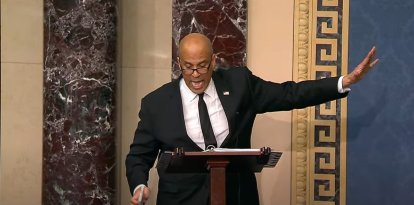Judicial setback for Trump: his request to dismiss the classified documents case was denied
"It's hard to see how this leads you to dismiss the charge," Judge Aileen Cannon said after the three-hour hearing.

Donald Trump (Cordon Press)
Donald Trump must continue to defend his innocence in the classified documents case. Judge Aileen Cannon, nominated to her position by the former president, denied Trump’s legal team’s request to dismiss the accusation. However, the Republican’s lawyers have already presented nine other arguments why the case should not continue, although those hearings have not yet been scheduled.
After a three-hour hearing, the judge found the defense’s argument insufficient. The former president’s defense alleged that the entire case of classified documents could be dismissed for “unconstitutional vagueness.”
Trump’s main lawyer, Emil Bove, explained the accusation was unclear and stated that the ambiguity of the existing statute allows for “selective” use of the rule, hand-picking who is accused and who is not, citing President Joe Biden as evidence.
“The court’s obligation is to strike the statute and say, ‘Congress, get it right,’” the lawyer continued in his argument before Cannon.
In turn, while the prosecutor representing Jack Smith, Jay Bratt, assured that the statutes were more than clear, the judge highlighted the fact that no former president had been accused of improperly handling classified documents.
As for the special prosecutor, he recently proposed that the trial begin on July 8, much later than the initial date of May 20, just before the Kentucky, Oregon and New Jersey primaries.
However, the judge only considered two of the nine motions filed by Trump on Thursday and avoided ruling on whether the case could be dismissed under the Presidential Records Act. Therefore, the Republican’s legal team still has more opportunities to remove cases from the judicial burden that the former president is dragging ahead of the November elections.
RECOMMENDATION





















